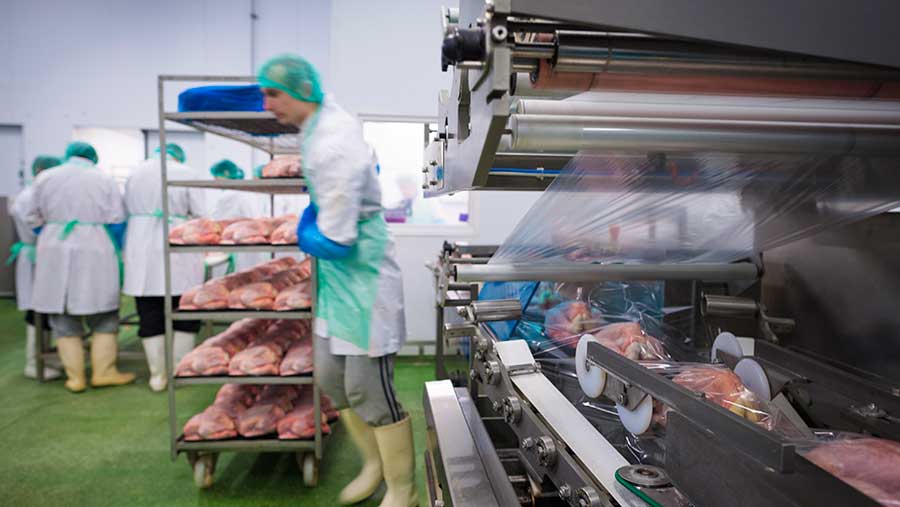Farmers share fears over access to non-UK workers
 © Jim Varney
© Jim Varney Farmers employing non-UK workers have warned it will have a devastating effect on their businesses unless they continue to have access to this skilled and flexible labour force.
Mark Gorton of Traditional Norfolk Poultry said it was a massive concern to him that once the UK leaves the EU there might be restrictions on access to labour.
The company, which produces and processes free-range organic chickens and turkeys, employs 200 workers throughout the year and up to 400 at peak times such as Christmas. About 70% of these workers are from eastern Europe.
See also: Analysis: Farming’s access to labour if the UK left the EU
“These people are absolutely vital to our business,” he said. “I don’t know what we would do if someone flicks the switch to stop them coming.”
Mr Gorton said he employed non-UK workers in a range of roles on the company’s free-range chicken farms and in its processing factory. They also held positions in the accounts office and some were employed as farm managers or area managers.
Past experience suggested local people weren’t willing to do the sort of work required – particularly in the processing factory, he said.
“We don’t advertise, but the eastern European workers actually come and put themselves forward to register to work with us. The local people don’t apply.”
Cheshire dairy farmer Phil Latham said over the years he had employed workers from Bulgaria, Moldovia, Romania and Poland. His current herd manager, who had been on the farm for a decade, was from the Philippines, while another member of the team was from Zimbabwe.
“Without access to European and non-European labour we would have had serious problems for recruitment, with near full employment locally,” he said.
Skilled problem-solvers
Mr Latham said he recruited skilled people, often graduates, who had the ability to solve and manage problems.
“We would struggle to recruit the kind of labour we need without freedom of movement. I want people who are capable of working unsupervised, who can take responsibility and who can deliver the results needed.”
NFU president Meurig Raymond said access to labour had to be a key consideration in the ongoing talks to shape a new domestic agriculture policy.
“Non-UK workers are often employed in a whole host of roles throughout farming and are crucial in day-to-day tasks as well as at peak times – as we are now experiencing with harvest.”
